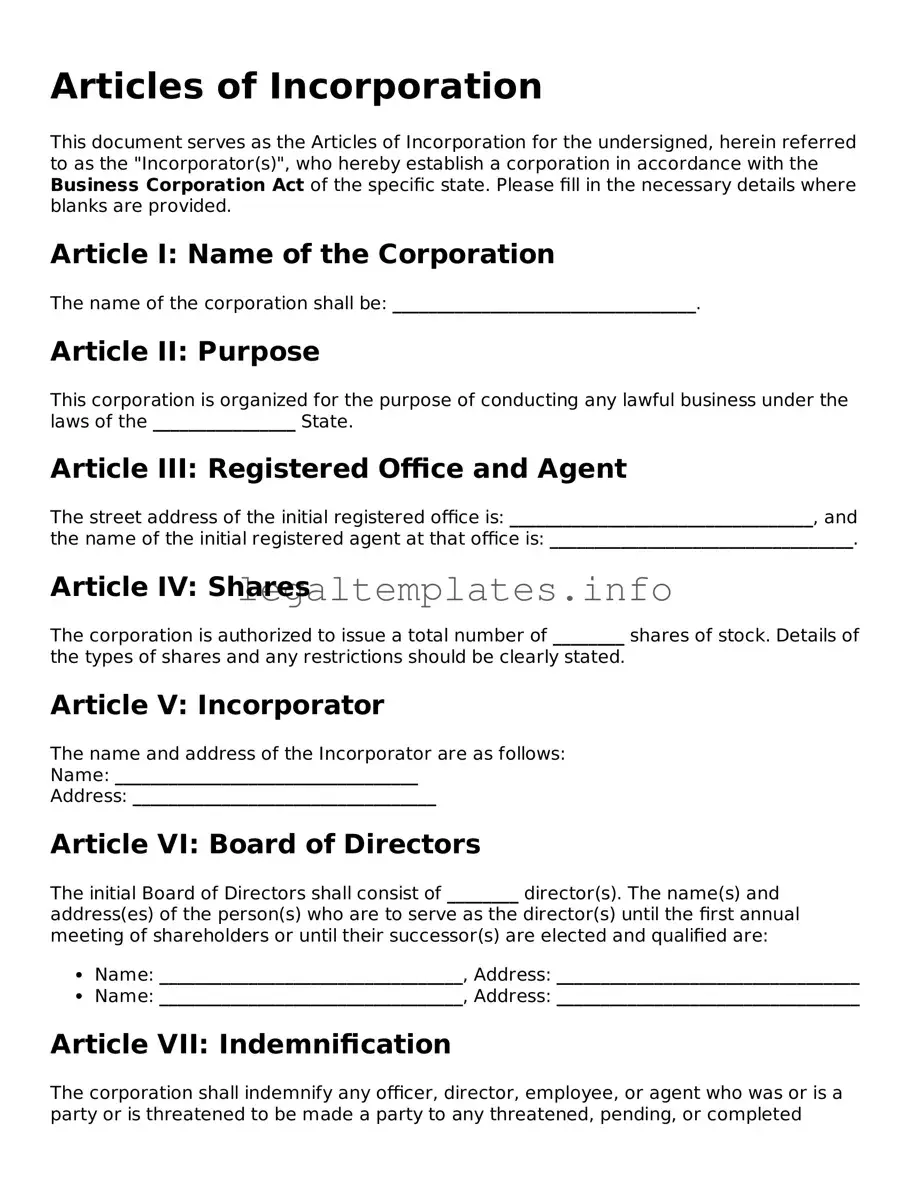Articles of Incorporation
This document serves as the Articles of Incorporation for the undersigned, herein referred to as the "Incorporator(s)", who hereby establish a corporation in accordance with the Business Corporation Act of the specific state. Please fill in the necessary details where blanks are provided.
Article I: Name of the Corporation
The name of the corporation shall be: __________________________________.
Article II: Purpose
This corporation is organized for the purpose of conducting any lawful business under the laws of the ________________ State.
Article III: Registered Office and Agent
The street address of the initial registered office is: __________________________________, and the name of the initial registered agent at that office is: __________________________________.
Article IV: Shares
The corporation is authorized to issue a total number of ________ shares of stock. Details of the types of shares and any restrictions should be clearly stated.
Article V: Incorporator
The name and address of the Incorporator are as follows:
Name: __________________________________
Address: __________________________________
Article VI: Board of Directors
The initial Board of Directors shall consist of ________ director(s). The name(s) and address(es) of the person(s) who are to serve as the director(s) until the first annual meeting of shareholders or until their successor(s) are elected and qualified are:
- Name: __________________________________, Address: __________________________________
- Name: __________________________________, Address: __________________________________
Article VII: Indemnification
The corporation shall indemnify any officer, director, employee, or agent who was or is a party or is threatened to be made a party to any threatened, pending, or completed action, suit, or proceeding, whether civil, criminal, administrative, or investigative, except in relation to matters as to which they shall have been adjudged to be liable for negligence or misconduct in the performance of their duty to the corporation.
Article VIII: Incorporation Validity
All acts performed in good faith under this document are validated under ________________ State law.
Article IX: Duration
The duration of the corporation is perpetual unless dissolved according to the state's law.
Article X: Bylaws
The initial bylaws of the corporation shall be adopted by the Board of Directors at their first meeting. The power to alter, amend, or repeal the bylaws or adopt new bylaws shall be vested in the Board of Directors unless otherwise provided in the bylaws or in the laws of the ________________ State.
IN WITNESS WHEREOF, the undersigned Incorporator has executed these Articles of Incorporation on this day of ________, _____________.
Signature of Incorporator: __________________________________
Printed Name: __________________________________
Date: __________________________________

